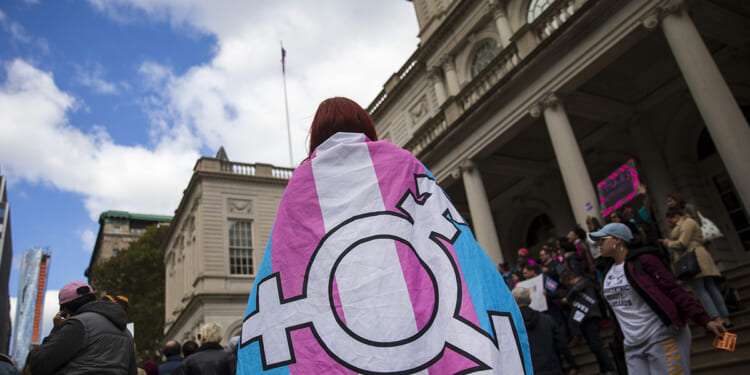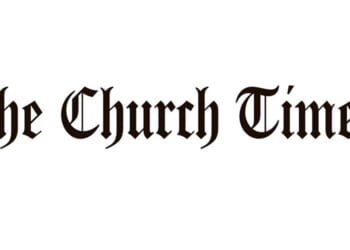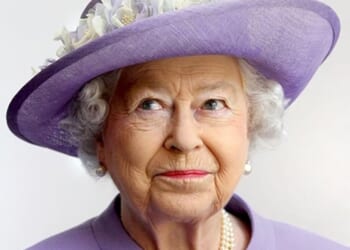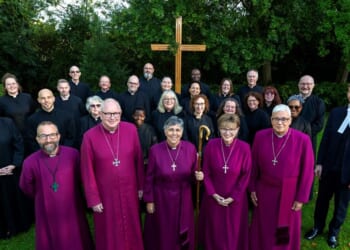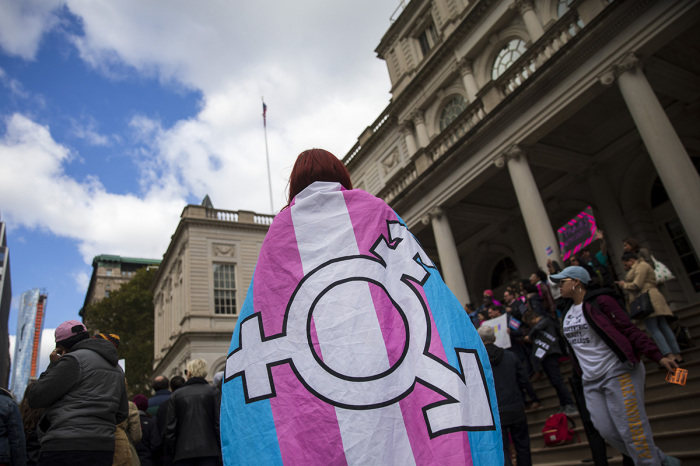
The Minnesota Supreme Court has ruled that USA Powerlifting discriminated against a trans-identified athlete by not letting him compete in its women’s division.
In a decision last week, the state high court concluded that USAPL violated the Minnesota Human Rights Act by barring JayCee Cooper from competing in the women’s division.
Minnesota Supreme Court Chief Justice Natalie Hudson, who was appointed by former Democratic vice presidential hopeful Gov. Tim Walz, authored the majority opinion.
The opinion rejects Cooper’s claim of discrimination in business, but affirmed the lower court’s claim of discrimination based on sexual orientation for public accommodation.
“We agree with Cooper that USA Powerlifting’s policy is discriminatory on its face; there is therefore no genuine dispute that USA Powerlifting discriminated against Cooper because of her transgender status,” wrote Hudson.
“Although USA Powerlifting lacked a formal, written transgender participation policy at the time of its initial communication with Cooper, the record establishes — and the parties do not dispute — that USA Powerlifting’s policy at the time of the decision was to categorically exclude transgender women from competing in the women’s division.”
The state supreme court believes “that an unfair discriminatory practice can exist even if benevolent or neutral considerations motivated the practice.”
“It would be impermissible for USA Powerlifting to prohibit all transgender women from competing in the women’s division based on a stereotype that all transgender women possess an unfair competitive advantage,” the opinion continued.
“For the foregoing reasons, we reverse the decision of the court of appeals in part, affirm in part, and remand to the district court for proceedings consistent with this opinion. Affirmed in part, reversed in part, and remanded.”
Larry Maile, past president of USA Powerlifting, issued a statement expressing gratitude that the high court rejected one of the claims Cooper made against his organization. Nevertheless, Maile was “disappointed with the court’s finding related to public accommodation,” adding that whenever “fairness is the foundation of sport, categories matter.”
“Taken to its logical conclusion, this determination means that USAPL will be forced to become an agent of discrimination against the largest protected class in the country — women,” stated Maile.
USAPL maintains that it acted for “legitimate, non-discriminatory reasons,” stating that Cooper went through puberty as a male.
“According to unrebutted scientific research, males have up to a 64 percent strength advantage in powerlifting, and supressing testosterone only reduces the advantage by about 10 percent,” Maile wrote. “The difference in outcomes makes it fundamentally unfair for a male-to-female transgender powerlifter to compete in the women’s division.”
Jess Braverman, legal director at Gender Justice, a group helping to represent Cooper, celebrated the ruling in a statement released last week, calling it “a historic victory for fairness, equity, and the fundamental rights of all Minnesotans.”
“This ruling sends a clear and powerful message: transgender people have a right to enjoy public spaces in Minnesota like sporting events, restaurants, and movie theaters, free from targeted discrimination,” said Braverman.
In 2018, Cooper applied to compete in USA Powerlifting’s women’s division, while also applying for a therapeutic use exemption from USAPL’s drug-free policy in order to continue taking spironolactone to treat gender dysphoria.
USAPL denied the therapeutic use exemption request, barring Cooper from competing in the women’s division. In 2021, Cooper sued the organization, alleging discrimination.
Minnesota District Court Judge Patrick Diamond ruled in Cooper’s favor in 2023, finding that USAPL’s policy “constitutes both public accommodation discrimination and discrimination in trade or business.”
In March 2024, however, the Minnesota Court of Appeals overruled the district court opinion, sending the case back to the lower court to determine if USAPL had, in fact, engaged in discrimination.
Appeals Court Judge Matthew E. Johnson, an appointee of Republican former Gov. Tim Pawlenty, authored the opinion, concluding in part that “USAPL has satisfied its burden to produce evidence of a legitimate, nondiscriminatory reason” for their policy.
“USAPL’s evidence, when viewed in a light most favorable to USAPL, is sufficient to allow a fact-finder to find that USAPL excluded Cooper from the women’s division of its competition because of her male physiology, not because of her sexual orientation,” he wrote.

